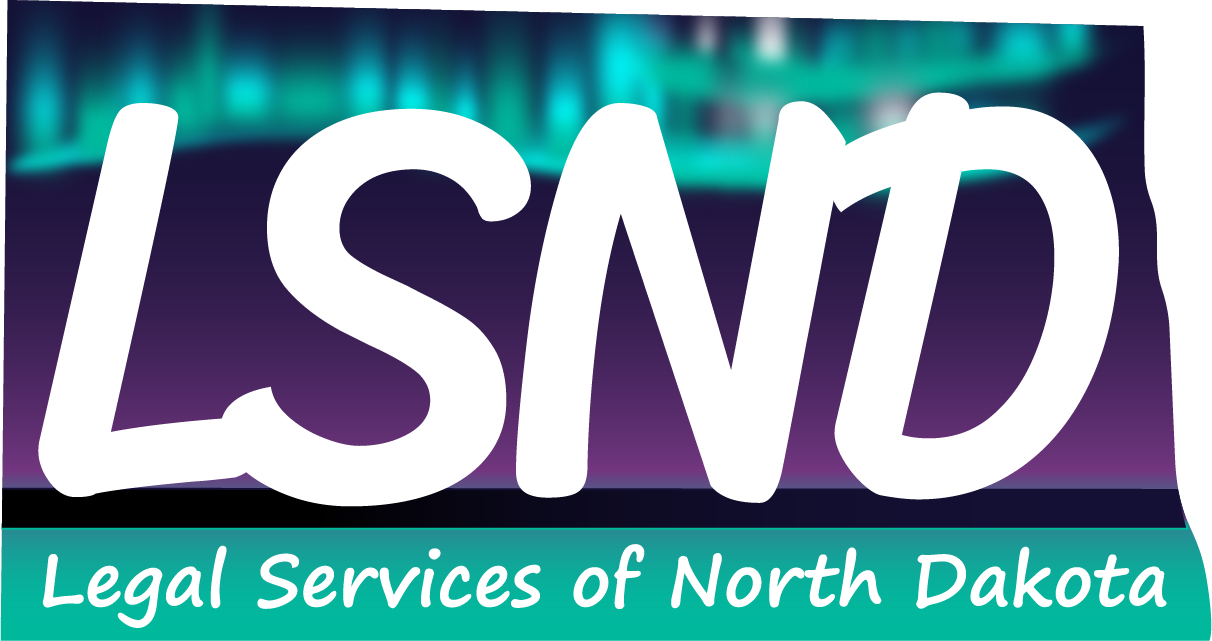What is Guardianship?
Guardianship is a court action appointing someone to make decisions for you when you become incapable of making your own decisions, usually due to an illness or when an incapacity endangers your health or safety.
A guardianship may severely limit your freedom to decide how to live your life.
What Are The Different Types Of Guardianship?
There are two types of guardianships, a full guardianship and a limited guardianship.
Under a full guardianship, the guardian is given the authority to make all decisions for you including:
• deciding where you live (i.e. nursing home, apartment)
• authorizing medical treatment
• handling legal matters
• handling financial matters; and
• handling educational and vocational matters
Before ordering a full guardianship, courts in North Dakota are required to consider a limited guardianship.
Under a limited guardianship the guardian is given the authority to make only those decisions which you are unable to make.
For instance, a limited guardian may be given the authority to arrange for medical treatment but not decide where you will live.
Who May Be Appointed Guardian?
The law states that any “competent person” or “suitable institution, agency, or non-profit group home” may be appointed guardian of an incapacitated person.
However the following people are given priority to be appointed guardian. They are listed in order of priority:
1. a person named in a durable power of attorney
2. a spouse
3. an adult child
4. a parent
5. a relative with whom the person has been residing for the past six months
6. volunteer agency
7. any appropriate government agency
8. someone chosen by whoever has been caring for or paying benefits for you
What Are Possible Alternatives To A Guardianship?
Before a guardian is appointed for you, other options should be considered if they would suffice for dealing with your needs:
1. Power of Attorney: Before you become incapacitated, you give someone authority to make decisions for you through a Power of Attorney. This is a legal document giving a trusted friend or relative the power to handle your private, business, legal affairs, or health care power of attorney, now called a Health Care Directive (see below).
2. Co-Signers on Bank Accounts: The owner of the account is able to have a trusted individual/relative assist them with paying bills, and that trusted individual is not seen or treated as an equal owner of the asset/account.
3. Home health care: If your incapacity involves an inability to bathe, clothe, remember to take your medication, or otherwise care for yourself properly, you might hire an individual to come to your home and assist you. Contact your county social service agency to learn about your options.
4. Meals on Wheels: Meals on Wheels is a non-profit organization in our community that delivers hot and well balanced meals to individuals who find it difficult to cook for themselves. If you are not eating properly, this may be a good option for you.
5. Health Care Directive: This document allows you to name someone you trust to make healthcare decisions for you when you are unable to make them for yourself.
6. Representative Payee. A person or organization to receive and manage your Social Security or SSI benefits.
7. North Dakota Informed Healthcare Consent Law. Establishes a priority list of persons who authorized to provide consent for minors or persons who are incapacitated.
If an alternative to a guardianship is not possible, the court must use the least restrictive form of intervention. Additionally, the guardian must involve you, the ward, in all decision making if you are able to communicate your wishes.

How Is A Guardianship Terminated?
A guardianship can be terminated if:
1. You or guardian dies; or
2. You or any interested party requests the court to redetermine the need for a guardianship.
The court will hold a new hearing and consider new evidence. If the court finds that your abilities have changed, the court can limit or terminate the guardianship.
How Will I Know If Someone Seeks A Guardianship Over Me?
You and your closest relatives must be notified in writing. If you do not want this to happen, you can challenge the action.
You have the right to a hearing. You have the right to consult an attorney, and your attorney may be present during the hearing.
You have a right to bring witnesses to testify for you.
You can have your own doctor testify. Your attorney can ask questions of the witnesses against you.
Who Do I Contact With Additional Questions?
Seniors 60 and over Call:
1-866-621-9886
Others Call:
1-800-634-5263
You may apply for legal services by completing our online website application.
